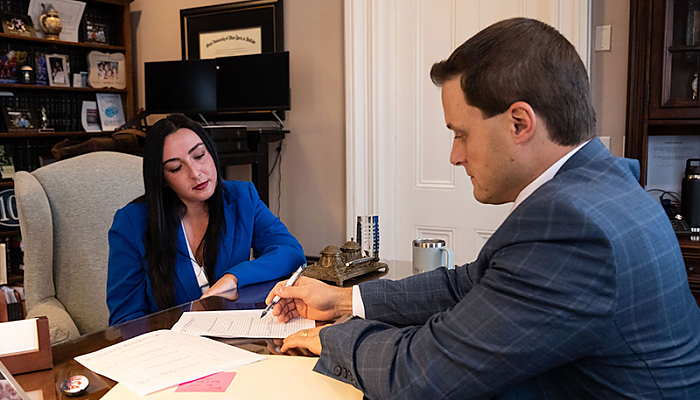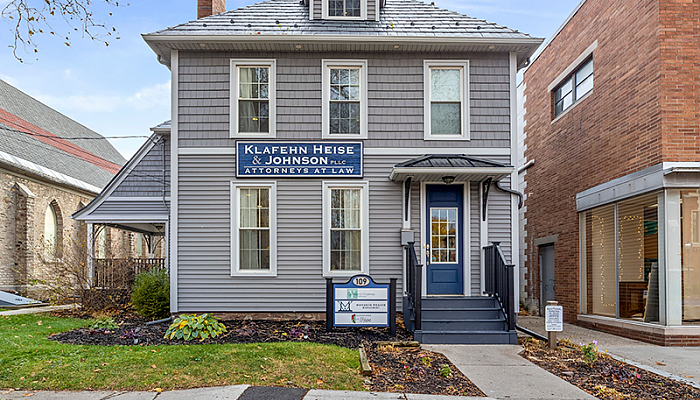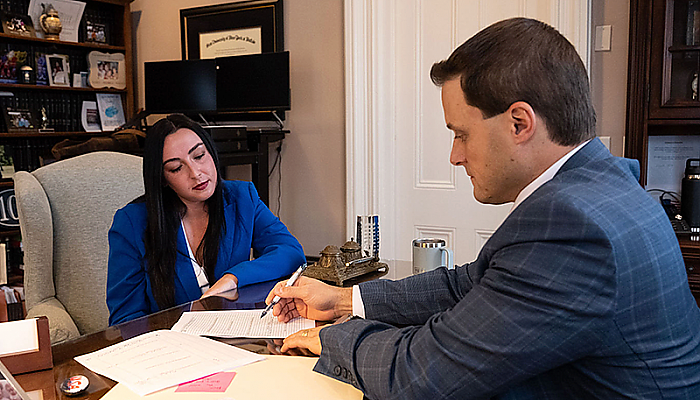What Happens If You Pass Away Without an Estate Plan in New York?

No one likes to think about their own passing, but having an estate plan in place is one of the most important things you can do for your family. Without one, your assets will be distributed according to New York State intestacy laws, which may not align with your wishes.
At Klafehn, Heise & Johnson P.L.L.C., we help individuals and families in Rochester, Brockport, and Monroe County understand how estate planning works and why it’s essential to have a plan in place before it’s too late. In this guide, we’ll explain what happens if you pass away without an estate plan in New York, and how you can avoid unnecessary complications for your loved ones.
1. What Is an Estate Plan, and Why Do You Need One?
An estate plan is a set of legal documents that outline how your assets should be managed and distributed after your passing. It typically includes:
- A will (specifying who receives your assets and who will manage your estate)
- A power of attorney (for financial decision-making if you become incapacitated)
- A healthcare proxy (for medical decision-making)
- A trust (less common than the foregoing items, but used for asset protection and avoiding probate)
Without an estate plan, New York’s intestacy laws decide what happens to your estate—meaning the government, not you, determines how your assets are handled.
Contact us today to start your estate plan and protect your loved ones.
2. What Happens If You Die Without a Will in New York?
If you pass away without a will, your estate is considered intestate, meaning the laws of the state of New York will control the distribution of your assets based on a legal hierarchy. This process follows strict rules and does not consider your personal wishes.
Who Inherits Under New York’s Intestacy Laws?
The New York intestacy laws distribute assets as follows:
| Survivors | Who Inherits? |
|---|---|
| Spouse, No Children | Spouse gets everything. |
| Spouse and Children | Spouse gets first $50,000 + half of the remaining estate; children split the rest. |
| Children, No Spouse | Children inherit everything equally. |
| Parents, No Spouse or Children | Parents inherit everything. |
| Siblings, No Parents, Spouse, or Children | Siblings inherit everything. |
| No Immediate Family | Extended family (cousins, aunts, uncles) inherit based on state law. |
| No Living Relatives | The estate goes to the state of New York. |
If you don’t have a valid will, you are allowing New York state law to control over who receives your assets, who manages your estate, or who cares for your minor children.
Ensure your wishes are honored—schedule a consultation today.
3. The Probate Process Without a Will
What Is Probate?
Probate is the court-supervised process of distributing a deceased person’s estate when there is a will. Without a will, the surrogate's court follows New York’s intestacy laws in the administration of the estate, which can make the process:
- More time-consuming (often extending the timeframe for the administration of the estate)
- More expensive (without your clear instructions for the estate in a will, there may be more conflicts and issues in your estate, resulting in increased attorney fees and administrative costs and a reduction in the estate’s value)
If no family members are available to manage the estate, the court may appoint a public administrator, which can further delay the process.
A proper estate plan with a will and/or trust can help ensure a smooth transfer of assets after your death. Talk to our estate planning attorneys today.
4. What Happens to Minor Children If You Pass Away Without an Estate Plan?
If you have minor children and pass away without a will, the New York Surrogate’s Court will decide who becomes their legal guardian. This means:
- The court—not you—chooses who raises your children.
- There may be disputes between family members over guardianship.
- The appointed guardian may not be someone you would have chosen.
A will allows you to designate a guardian, ensuring your children are raised by someone you trust. Don’t leave this decision to the court. Create a will today.
5. Financial Risks of Dying Without an Estate Plan
1. Assets May Be Distributed in a Way You Wouldn’t Want
If you wanted to leave assets to a friend, unmarried partner, charity, they will receive nothing under New York intestacy laws unless specified in a legal estate plan.
2. Higher Legal and Court Costs
The longer the estate administration process takes, the more money is spent on:
- Legal representation
- Administrative costs
3. Possible Estate Taxes
New York has an estate tax for estates over $6.94 million (as of 2024). Without proper planning, your estate may owe significant taxes, reducing the inheritance left for your heirs.
An estate plan can help reduce tax liabilities and protect your assets. Learn more about tax-saving strategies today.
6. How to Avoid These Issues: Create an Estate Plan Today
What an Estate Plan Includes
A strong estate plan consists of:
- A Will – Specifies how assets are distributed and names a guardian for children.
- A Power of Attorney – Appoints someone to handle financial matters if you become incapacitated.
- A Healthcare Proxy – Allows someone you trust to make medical decisions on your behalf.
- A Trust – Less common than the foregoing documents, but helps avoid probate and provides asset protection.
By setting up an estate plan, you:
- Control who inherits your assets.
- Choose who manages your estate.
- Ensure your children are cared for by the right person.
- Minimize taxes and avoid unnecessary court costs.
Take the first step—schedule a consultation today.
Take Action Now: Protect Your Family’s Future
Without an estate plan, your family could face legal disputes, higher court costs, and unnecessary stress. The good news? Creating an estate plan is easier than you think—and we’re here to help.
At Klafehn, Heise & Johnson P.L.L.C., we assist clients throughout Rochester, Brockport, and Monroe County with estate planning solutions that protect their assets and loved ones. Don’t leave your future in the hands of the state.
Contact us today to create a will, trust, or full estate plan that ensures your wishes are carried out.
Legal Disclaimer
This article provides general information about estate planning in New York State and should not be construed as legal advice. Each individual’s situation is unique, and estate laws vary. For personalized legal guidance, contact Klafehn, Heise & Johnson P.L.L.C. in Rochester, NY. You can reach us here. Portions of this article are considered ATTORNEY ADVERTISING under the New York State Unified Court System Rules of Professional Conduct (22 NYCRR Part 1200). Prior results do not guarantee a similar outcome.
‹ Back













